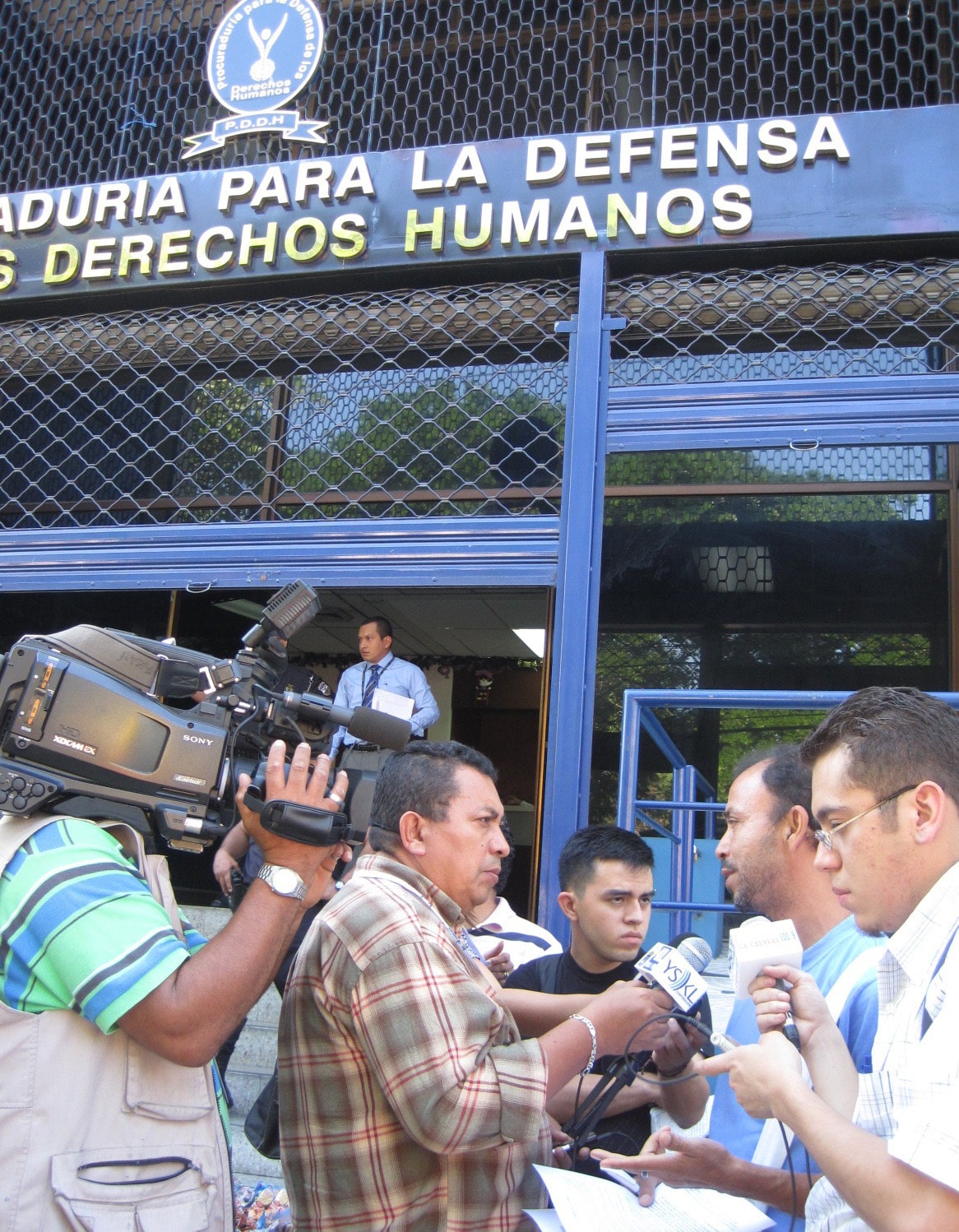On December 12, 2012, 12 young people were arrested in the poor community of El Progreso 3, in the northeastern part of San Salvador. Dressed all in black with their faces covered, police from the much-feared Anti-Gang Unit stormed the community in the middle of night, going home to home, trampling down doors and pulling young people from a community center. The police claimed that the goal of the raid was to arrest suspected gang members, but several young community leaders were also apprehended, while their terrified families and neighbors looked on. The students were taken directly to jail, charged with illicit association, and thrown into crowded cells already filled with accused criminals awaiting trial.Now, nearly a month after the raid, neighbors and members of the Movement of Popular Resistance-October 12 (the MPR-12), a national alliance of community organizations and unions, are demanding that the six youth leaders arrested be released from the overcrowded temporary jail where they are being held in inhumane conditions. Community members gathered in front of the downtown office of the Ombudsman of Human Rights to show support for these falsely accused youth leaders and demand that the national police and specialized anti-gang units stop terrorizing the communities in and around the areas where the students were arrested.About 50 people, including family members and neighbors of the arrested youth, addressed the Salvadoran press and held signs declaring "Organizing to Improve Our Communities Is Not a Crime" and "Stop the Criminalization of Protest." Ana Gladis Rivera spoke about her twenty-five-year old son, Emerson Rivera, who, along with a friend and fellow youth organizer, Giovanni Aguirre, has been in hiding since the raid, fearing that to turn himself over to the authorities would land him in another overcrowded jail cell.Like the others, Emerson's mother was indignant at the charges of illicit association brought against her son, who has organized popular education schools, soccer tournaments, and health campaigns in the community, and has worked with his neighbors on infrastructure projects in which the municipal government declined to invest. The MPR-12 alliance awarded Emerson and Giovanni scholarships in recognition of their local and national youth organizing work, and the two were expecting to start their university studies this month. Rivera believes that her son and his fellow youth organizers are being targeted because of their involvement with the leftist FMLN party and their outspoken criticism of the administration of Mayor Norman Quijano of the right-wing ARENA party. Quijano, who is also ARENA's candidate for the 2014 presidential elections, has been widely criticized for his disregard for the poorer sectors of San Salvador. In November, Quijano ordered the violent eviction of thousands of street vendors, the majority of whom are single mothers with no other source of income.Since the young men are charged with being tied to gang or organized crime, their cases are part of a specialized court system made up of police judges trained by the U.S.-run International Law Enforcement Academy (ILEA). Under this specialized system, it seems that the police need very little, or even no, evidence to charge suspects with illicit association. In their first hearing in December, neither the youths nor their lawyers were able to present evidence in their defense.
[ed notes:click link for whole article...

No comments:
Post a Comment